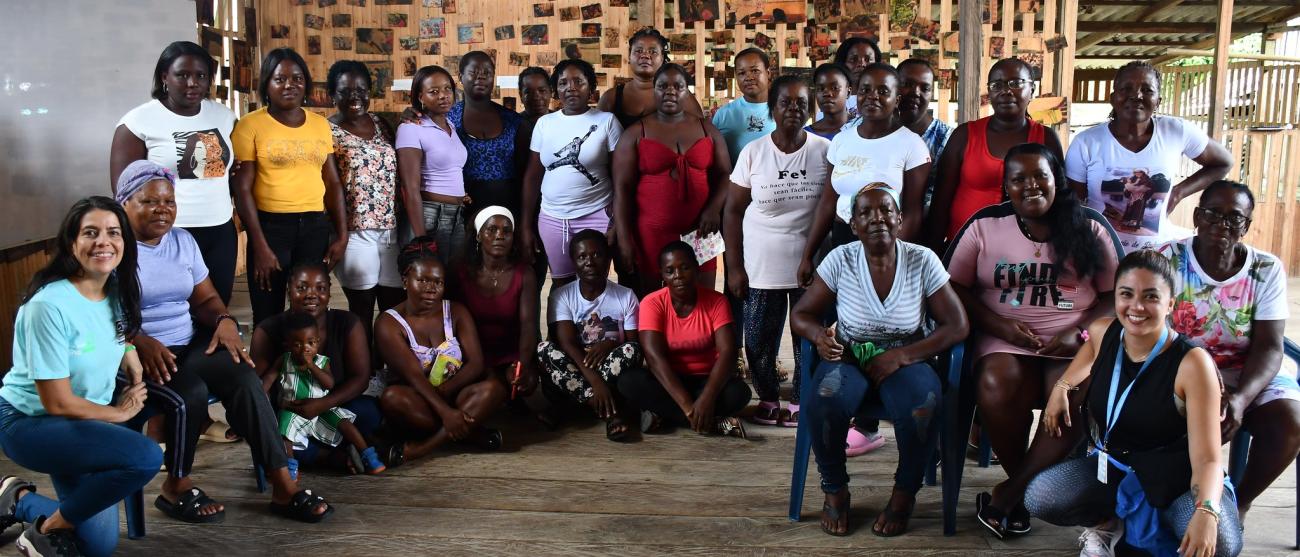FAO promotes regional dialogue on Afro-descendants and rurality in Latin America and the Caribbean

FAO & various civil society organizations gathered in a regional meeting to define strategies & discuss key points in the debate on Afro-descendant & rurality.
The Food and Agriculture Organization of the United Nations (FAO), in collaboration with the Economic Commission for Latin America and the Caribbean (ECLAC) and various regional organizations, organized a Dialogue on Afro-descendant in Rural Latin America and the Caribbean.
The meeting aimed to analyze the socio-economic challenges facing Afro-descendant peoples while recognizing their valuable contribution to protecting ancestral knowledge, genetic resources, and sustainable ecosystem practices.
This regional dialogue is part of the follow-up to the Regional Technical Workshop held on November 20-23, where representatives from 11 countries, including Afro-descendant leaders and government officials, developed a roadmap to discuss public policies that ensure greater inclusion and promote the empowerment and visibility of these communities.
Current estimates indicate that 22.5% of the rural population in Latin America is Afro-descendant. This figure reflects the urgent need to develop inclusive policies recognizing and protecting collective and individual rights in rural areas. Despite their cultural and environmental richness, these communities face significant challenges such as extreme poverty, unequal access to basic services, food insecurity, and social exclusion, exacerbated by racism and discrimination.
Eve Crowley, FAO Deputy Regional Representative for Latin America and the Caribbean and FAO Representative in Chile, stated, "It is essential to act together and in a coordinated manner to address historical reparations for Afro-descendant peoples and communities, based on historical truth, long-sought justice, and an inclusive and sustainable development approach.
June Soomer, Chairperson of the Permanent Forum of People of African Descent, stressed that "policies must focus on equitable access to education, health, land tenure, and economic opportunities, among others, while promoting cultural preservation."
Fabiana Del Popolo, head of ECLAC's Demography and Population Information Unit, noted, "The cornerstone of ensuring the collective rights of Afro-descendants in rural areas is recognizing and promoting territorial rights. Although some 8 million hectares of Afro-descendant communal lands have been titled, this represents only 5% of the territories historically occupied by Afro-descendants".
José Luis Rengifo of the Coalition for Territorial and Environmental Rights of Afro-descendant of Latin America and the Caribbean emphasized that land is a cross-cutting issue that must be viewed from a rural perspective and that it is essential to strengthening internal organization and capacity within territories. He also noted that the organizations demand "global recognition as Afro-descendant peoples of Latin America and the Caribbean.
Goals of the Regional Dialogue
During the discussions, it was noted that Afro-descendant peoples in Latin America and the Caribbean face significant challenges of inequality and marginalization, especially in rural areas. Despite their fundamental contributions to biodiversity and food sovereignty, their inclusion remains limited. It is necessary to promote inclusive public policies that recognize their collective and individual rights and strengthen their participation and autonomy in the region to close these gaps.
It was also noted that rural Afro-descendant women, who face multiple forms of discrimination, require specific funding and support mechanisms. Protecting ancestral knowledge in these communities is essential for food security and territorial sovereignty. The need for historical reparations for slavery was also emphasized, promoting equity that fully integrates these peoples into rural development.
For this reason, participants stressed the need to strengthen the regional network of Afro-descendant authorities to improve coordination in decision-making on issues that directly affect these populations. Through this dialogue, FAO reaffirms its commitment to inclusion and equity, promoting sustainable policies that respect the rights of Afro-descendant and are consistent with the global goals of leaving no one behind.
...............................................
This story was first published by FAO Regional Office for Latin America and the Caribbean.

